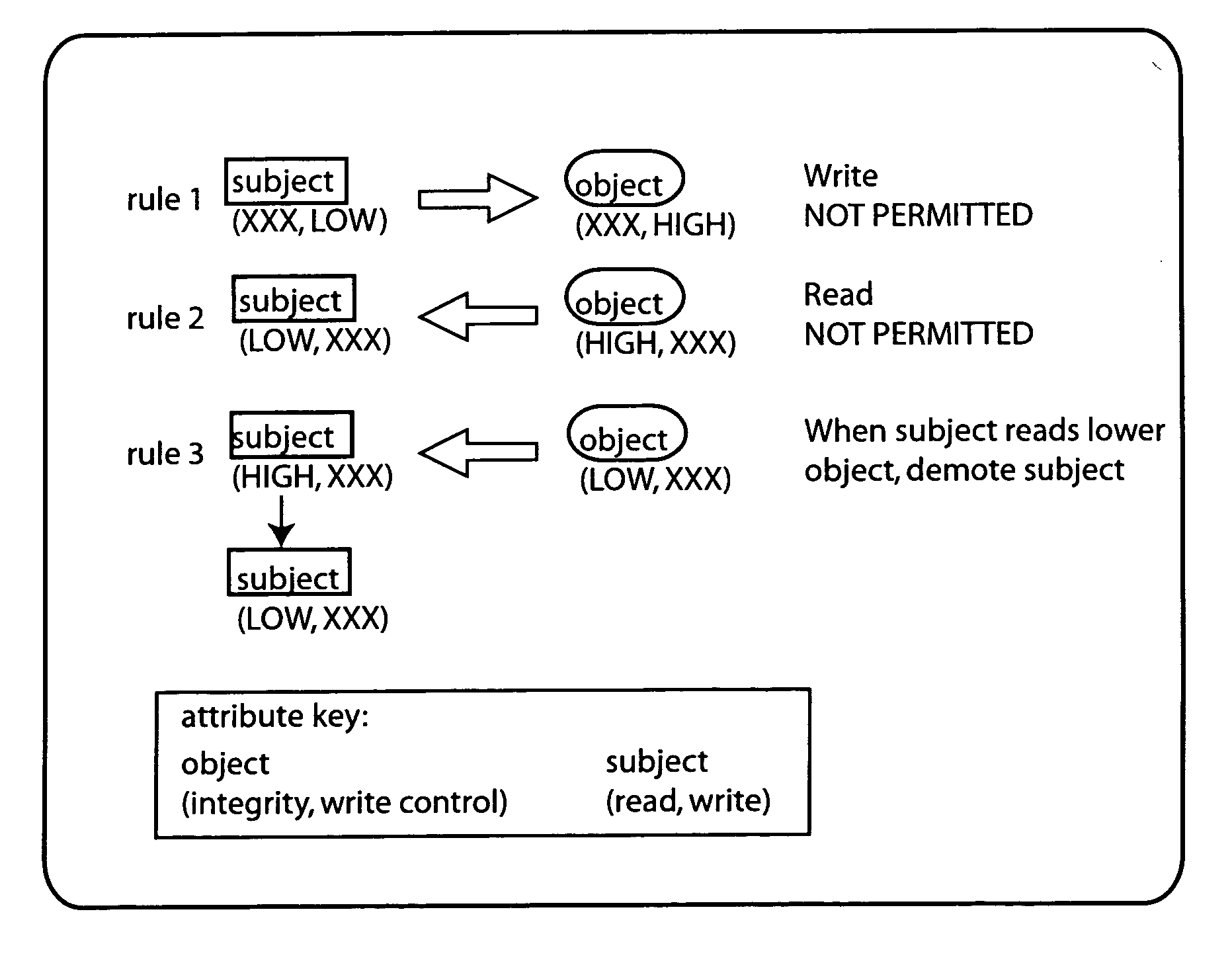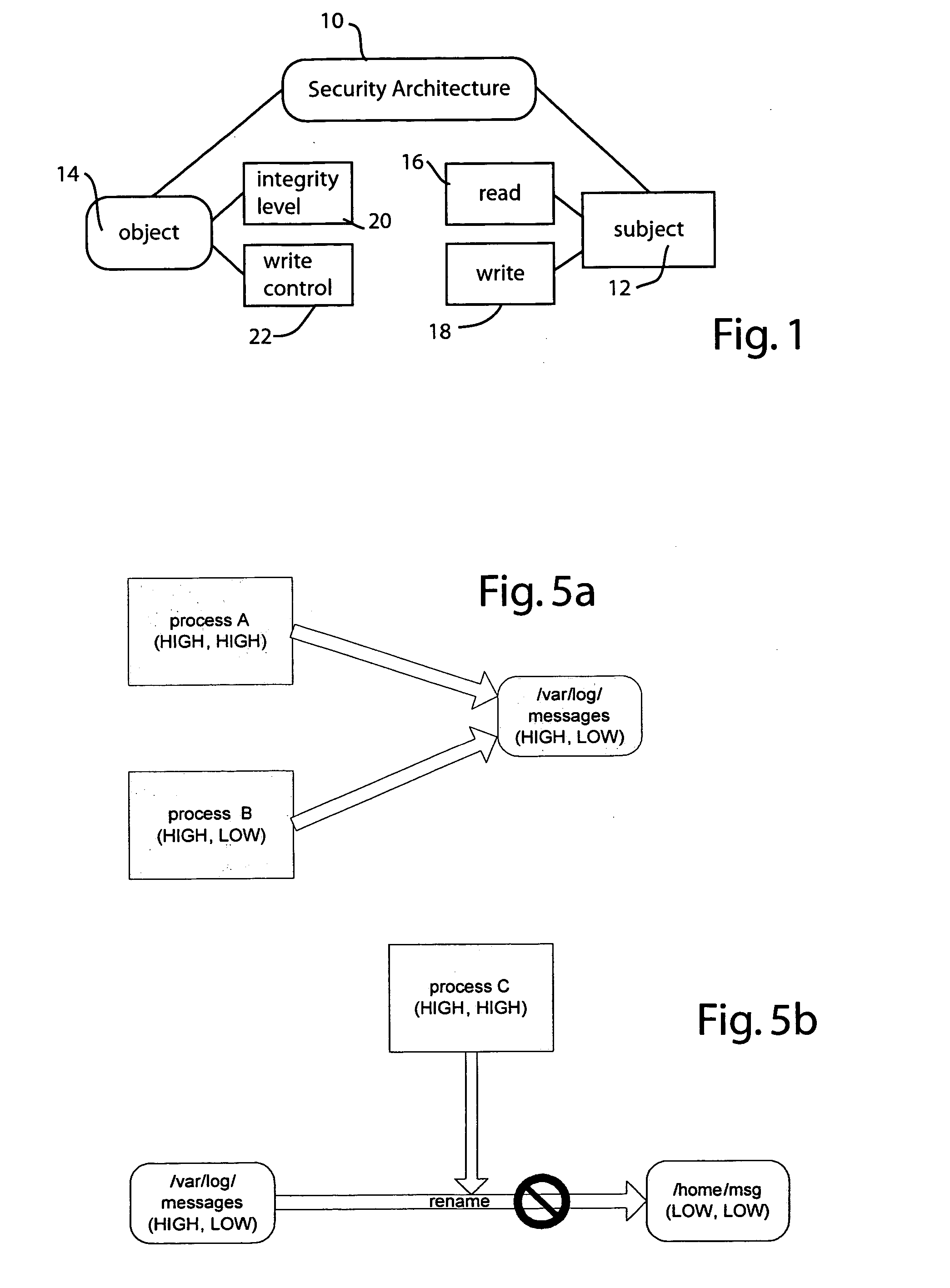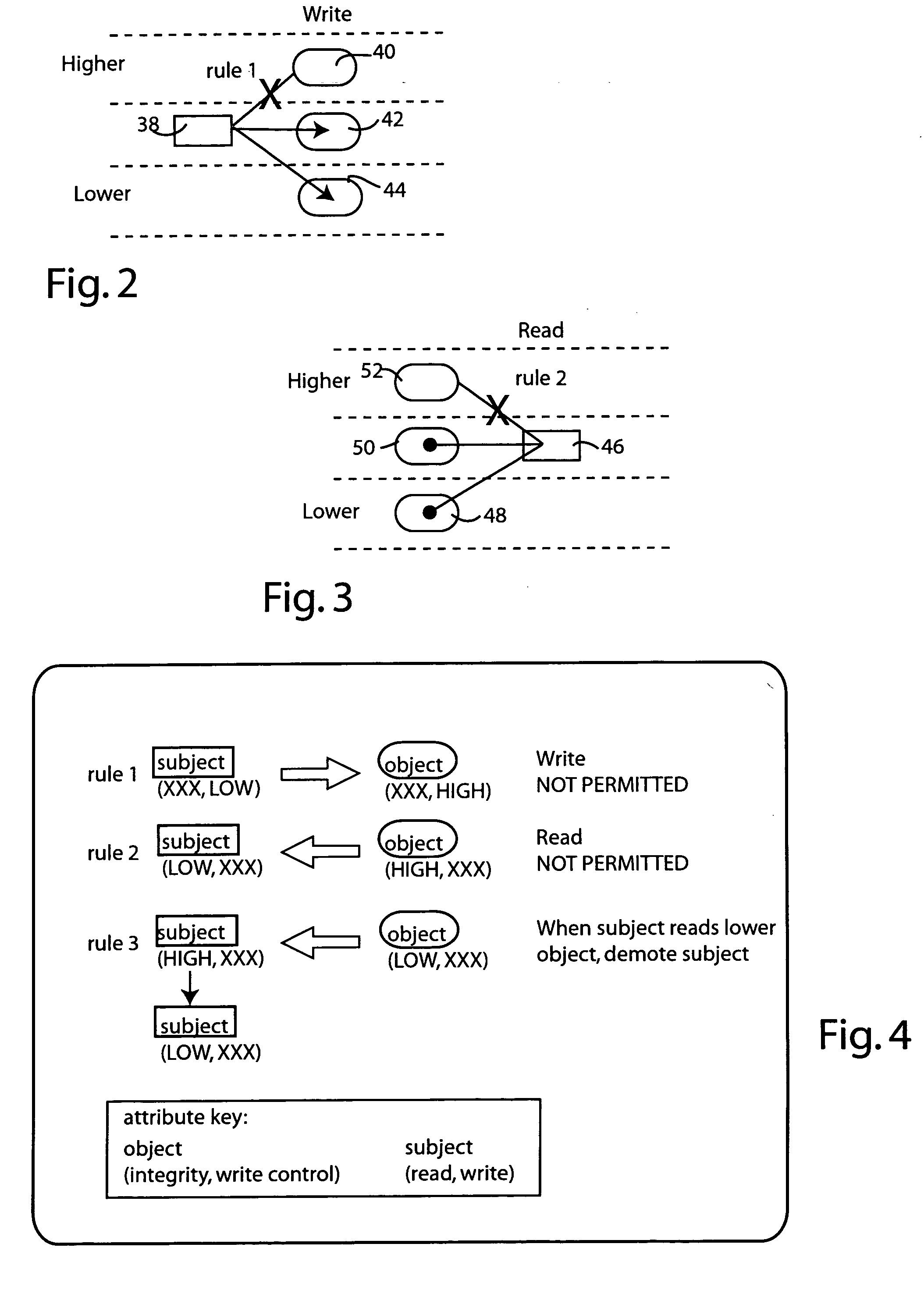Mandatory access control scheme with active objects
a technology of access control and active objects, applied in the field of access control, can solve the problems of leaking higher integrity data, tampering and bypassing of mechanisms,
- Summary
- Abstract
- Description
- Claims
- Application Information
AI Technical Summary
Benefits of technology
Problems solved by technology
Method used
Image
Examples
Embodiment Construction
[0016] The following description of the preferred embodiment(s) is merely exemplary in nature and is in no way intended to limit the invention, its application, or uses.
[0017] Referring to FIG. 1, a presently preferred security architecture is illustrated at 10. The architecture recognizes both subject entities 12 and object entities 14. Subjects represent entities that produce or consume data, such as users, agents, processes, threads, and the like. Objects represent data stores, such as files, streams, media content, communication channels (e.g., UNIX pipes) and the like. Objects may be adapted to be read from, written to, or both, depending on the object's purpose. Thus subjects may be configured to read from objects and write to objects, depending on the system requirements. If desired, subjects can read from one object and write the data obtained to another object. Thus the architecture supports the copying of selected contents from one object to be written to another object. ...
PUM
 Login to View More
Login to View More Abstract
Description
Claims
Application Information
 Login to View More
Login to View More - R&D
- Intellectual Property
- Life Sciences
- Materials
- Tech Scout
- Unparalleled Data Quality
- Higher Quality Content
- 60% Fewer Hallucinations
Browse by: Latest US Patents, China's latest patents, Technical Efficacy Thesaurus, Application Domain, Technology Topic, Popular Technical Reports.
© 2025 PatSnap. All rights reserved.Legal|Privacy policy|Modern Slavery Act Transparency Statement|Sitemap|About US| Contact US: help@patsnap.com



